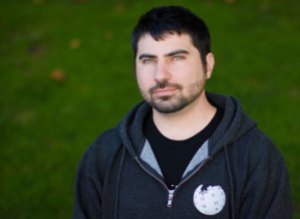
Most top websites have thousands of software developers on staff, creating new features and keeping the site running securely. The Wikimedia Foundation has about forty. That’s pretty amazing, considering Wikipedia is the fifth most popular web property in the world. So, what’s our secret?
Well, we don’t have any secrets.
We make everything free, in every sense of the word. The technology we operate has been built by thousands of people around the world who collaborate freely and build upon each other’s contributions. Every article, every picture, every piece of code is free for anyone to use, reuse, copy, distribute and improve.
“Other tech companies wouldn’t share their installation, configuration or system documentation,” said Ryan Lane, an operations engineer at the Wikimedia Foundation. These proprietary data are the competitive advantage most websites have over their peers and they guard them dearly. “Wikipedia documents and shares all of that.”
“No other organization of our scope would dream of being this open,” he added. “It is our fundamental organizing principle.”
Lane understands what it means to operate in secret. Before coming to the Foundation, he spent six years working on classified projects for the U.S. government at the Naval Oceanographic Office (NAVO). He was forbidden from speaking about his work.
“In the government, I wouldn’t be allowed to talk about any of it. Not being able to talk about anything I do is really painful,” he said of working in a closed environment. “The ability to share everything is very freeing.”
Lane hails from New Orleans, where he studied computer science at the University of New Orleans. He has been with the Foundation for nearly two years, managing web infrastructure to ensure that Wikimedia projects become more reliable and efficient. For Lane, working in an open-source and transparent environment is what makes his work meaningful.
“In computer science, it’s very difficult not to be able to share your knowledge with other people. The way I learned most of the things I know is because people shared their expertise with me,” he noted.
Because the Wikimedia sites are so open, according to Lane, it’s much easier to collaborate with the community. In addition to the roughly 40 software developers on staff at the Foundation, there are more than 200 regular volunteer developers improving MediaWiki software, the backbone of Wikipedia and thousands of other wikis.
Lane manages Wikimedia Labs, a project that was created to allow volunteers to make contributions to MediaWiki development, tools and analytics. Working in an open environment means Lane can not only talk about a problem, he can give a total stranger a replica of our configuration system so they can help change and improve our operations infrastructure.
At a recent hackathon in San Francisco, Lane said, a programmer who had never previously worked within Wikimedia’s environment fixed a bug in the logging infrastructure behind our https site. His code was good and Lane pushed it to production. “It was running live within a few hours,” he said.
According to Lane, in a closed environment everyone has to do everything themselves, which requires more people on the whole for the organization. Or you have to pay “a lot of money to get support to come and help you, and the support is generally subpar in comparison.”
When asked whether being so transparent was a security liability, Lane argued the value of open-source was more significant than the risk of someone hacking the projects.
“It might be a little crazy to share our server configuration,” Lane admitted. “To a point, it does make us more vulnerable, but I think there’s enough benefit in it to outweigh the worries about the vulnerabilities.”
(For more information about Lane’s work with the Wikimedia projects, read his blog here.)
Reporting and story by Elaine Mao and Jordan Hu
Communications Department Interns

Can you help us translate this article?
In order for this article to reach as many people as possible we would like your help. Can you translate this article to get the message out?
Start translation